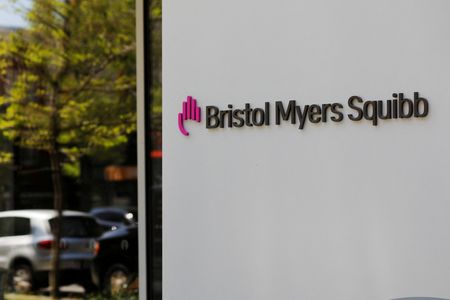
By Blake Brittain
WASHINGTON (Reuters) -The U.S. Supreme Court on Monday rebuffed a bid by Bristol Myers Squibb Co’s Juno Therapeutics Inc to reinstate a $1.2 billion award it won in its patent fight with Gilead Sciences Inc subsidiary Kite Pharma Inc over a lymphoma drug.
The justices turned away Juno’s appeal of a lower court’s ruling throwing out the award in the litigation over Kite’s biologic drug Yescarta, in a case that could have repercussions for the cutting-edge biologic drug industry.
Juno and Sloan Kettering Institute for Cancer Research sued Kite in 2017 in federal court in Los Angeles, accusing it of copying technology that the institute licenses to Juno. A jury awarded the plaintiffs $778 million in damages, which a judge later increased to $1.2 billion.
But the patent-focused U.S. Court of Appeals for the Federal Circuit threw out the award last year, finding that the patent was invalid because it lacked a sufficient written description. Juno and Sloan Kettering have told the Supreme Court that the Federal Circuit’s decision to invalidate the patent and other rulings against biologic patents have been “devastating for innovation.”
Biologic drugs are made from biological cells, unlike traditional pharmaceuticals. Kite created Yescarta, which reprograms the body’s immune cells to recognize and attack cancer cells. Worldwide sales of Yescarta reached nearly $700 million last year.
Juno told the Supreme Court in its appeal that the Federal Circuit’s validity standard for patents forces biologic inventors to outline an “essentially infinite number” of potential variations in a patent.
Pharmaceutical companies including Amgen Inc and GlaxoSmithKline and research institutions including the St. Jude’s Children’s Research Hospital filed briefs in support of Juno.
Kite said in a brief to the Supreme Court that the Federal Circuit’s decision was in line with longstanding patent law and that Juno’s patent had “tried to monopolize – and block everyone else from investigating – millions of billions of possible drug candidates at the infancy of a field.”
On Nov. 4, the Supreme Court took up another patent case involving biologic drugs, agreeing to hear Amgen’s bid to revive patents on its cholesterol drug Repatha.
(Reporting by Blake Brittain and Andrew Chung; editing by Will Dunham and Grant McCool)

